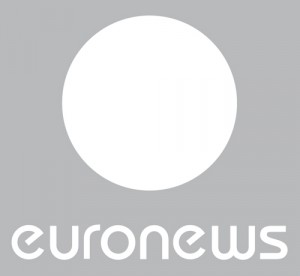euronews’ new dimension
January 18, 2011
by Colin Mann
 International news channel euronews has unveiled a range of developments which it claims will take the channel to a new dimension. As 2011 gets under way, the service is switching to a 16/9 format and introducing a range of presentational, organisational and distribution initiatives.
International news channel euronews has unveiled a range of developments which it claims will take the channel to a new dimension. As 2011 gets under way, the service is switching to a 16/9 format and introducing a range of presentational, organisational and distribution initiatives.
euronews is to open 11 news desks during the coming year to expand its editorial coverage and network around the world. Permanent desks will be sited in Paris, Kiev (local journalists), Istanbul, Dubai, Washington and Beijing. The Brussels office will be a key feature of the new organisation, as it becomes the first international news team to operate in the capital of Europe. An 11th language will join the existing 10 in August 2011 when euronews launches its new service in Ukrainian
For 2011, euronews is also bolstering its availability anytime, anywhere, on any device. Michael Peters, MD of euronews, announced extended partnerships with video sharing sites YouTube and Dailymotion: new channels, with greater availability on catch-up TV in the ‘Shows’ section of YouTube. In terms of User Generated Content, in partnership with Google, the channel will broadcast a weekly programme – Trends – which reports on keywords most requested by Internet users in Europe;
Peters also confirmed the February launch the euronews live application for iPhone, iPad and Android, as well as the launch of the full euronews application for iPad in the first half of 2011, and the launch of euronews radio, an Internet radio station.
The ‘euronews display’ initiative will showcase euronews in a 100 per cent visual format (video and text) designed for busy places such as train stations and airports, while euronews in flight stems from an exclusive agreement signed with Air France.
Peters said that euronews was committed to Internet-connected TV. Following the first agreement with TV set manufacturer Panasonic, he confirmed that euronews was in the process of signing agreements with the six top manufacturers, including Toshiba, Sony and Philips. “We believe in this product,” he said. “It’s the last step of the new media revolution.”
